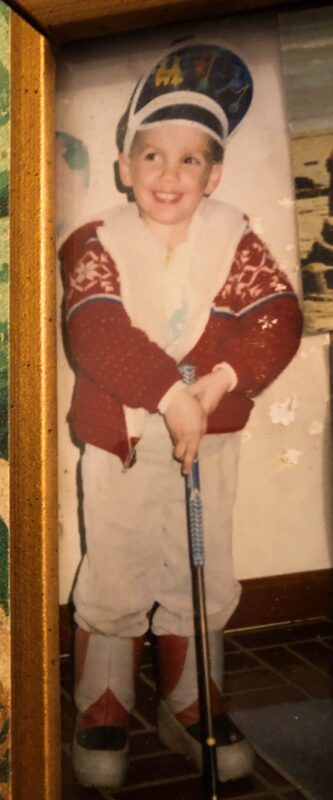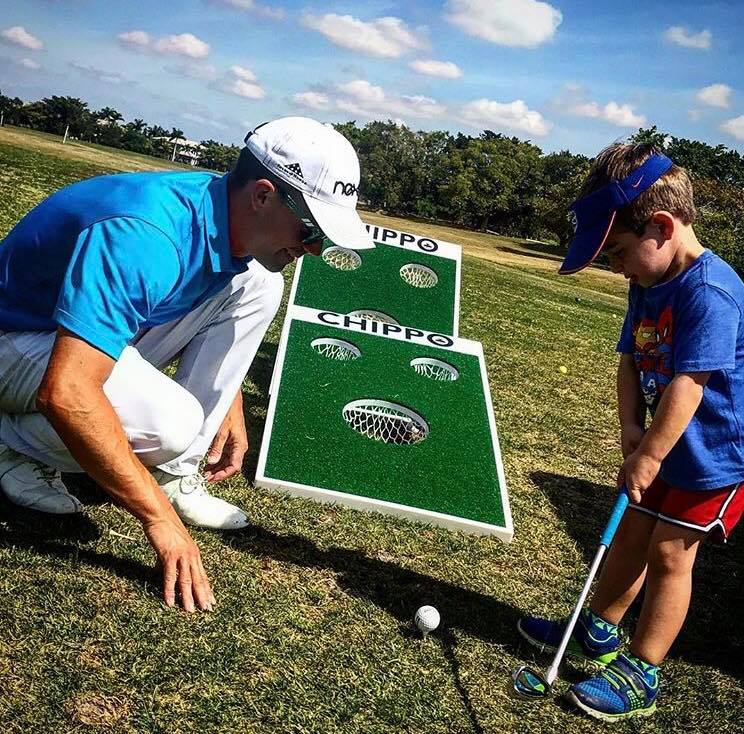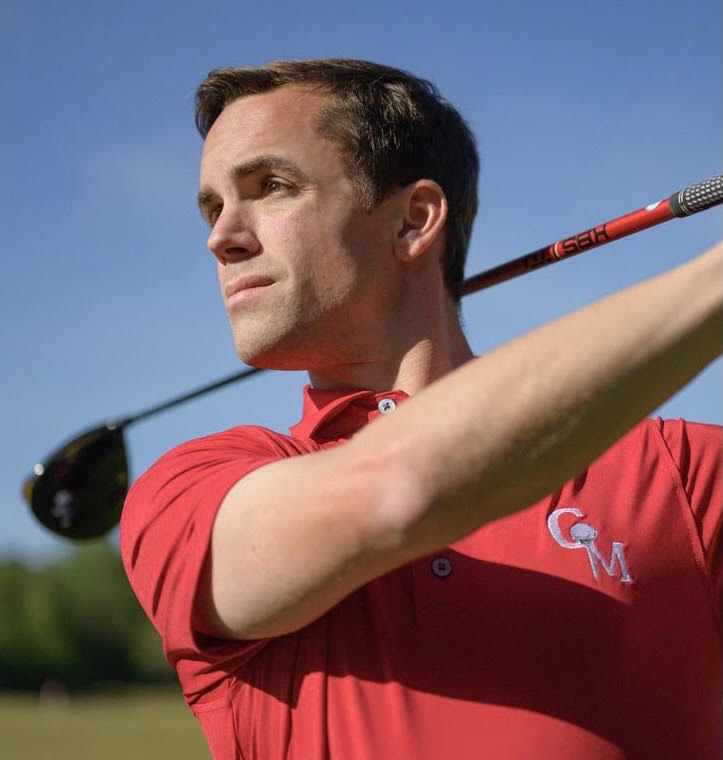Colin McCarthy has a nostalgic connection with golf. He can’t remember how young he was when he started playing the game with his grandfather, who was a golf pro and jack-of-all-trades, but a photo of Colin at the age of one, carrying around a club and a golf ball, testifies that he was fascinated with the game from an early age.
That fascination continued through high school. Colin had the talent, predisposition and goal to be a collegiate golfer, and he envisioned a career as a player on the PGA Tour. But when he was 17, that all changed in a moment when a snowboarding accident wrecked his shoulder and derailed those plans. No longer eligible for an athletic scholarship, Colin had to rethink his future. Instead of playing, he spent the next two years attending the Golf Academy of America, studying the business of golf.

“When I graduated from the Golf Academy, I still wasn’t sure what I wanted to do with my life. I worked as a seasonal golf pro, delved into music, and eventually ended up back at home where I worked at Dick’s Sporting Goods while playing at my local home course.” Colin was soon breaking records at the course and gained the attention of a colleague who encouraged him to rethink a profession around golf. His colleague helped him secure admittance to a PGA Management program at Coastal Carolina University, and from there, Colin became a student of the golf swing. “I was told that in order to make it as a coach, I needed to learn and follow the techniques that successful coaches were teaching. But my big question was ‘with all the research, the coaching and the techniques available, why were some people still not improving their game?’ There obviously is no guaranteed fix to improving a golf swing. So, I started studying and figuring out the swing on my own.”
“I have studied body types, I have studied golf clubs, and now I want to learn more about how the brain affects a swing.”
In his research, Colin used science as his base, mapping out the swing and applying basic geometry to understand how different body types affected a swing. “I did a few coaching internships after graduation, but it wasn’t until I was working with Roger Lundy in Indiana that I was given the opportunity to apply my knowledge and develop my own coaching style. Having that space to do so led me to booking my first private student, and in 2 ½ months I helped that student break 80, when he had never broken 90 before.” Colin also discovered that he really enjoyed helping people get better at what they love to do.

Continuing his research and disguising science experiments as trick-shots led to a healthy social media following and more clients. Now a sought-after coach and trainer, Colin has found purpose in life helping athletes overcome physical and mental obstacles to improving their game. “I have studied body types, I have studied golf clubs, and now I want to learn more about how the brain affects a swing.” His idea of success? “I don’t know everything, but my idea of success is to be able to conquer any question from a student with an immediate answer.”
Looking back at the time of his injury and the realization that his life’s trajectory had changed, Colin says the trauma he experienced impacts his coaching style. “When you experience loss, you understand the impact it has on a person. I’m acutely aware that when I’m working with a student, especially kids, I can’t take back anything I say. If I say anything traumatizing, it’s going to stick with them.”
Colin joined Every Kid Sports as a Champion and is enthused about helping kids gain access to the game of golf. “Driving ANY sport towards ANY age will change lives forever! Kids are our future, and I hope to expose golf to every kid out there and let them decide what it can do for them!”
———————-
Thank you for being a Champion, Colin. We appreciate your support!
– Every Kid Sports


